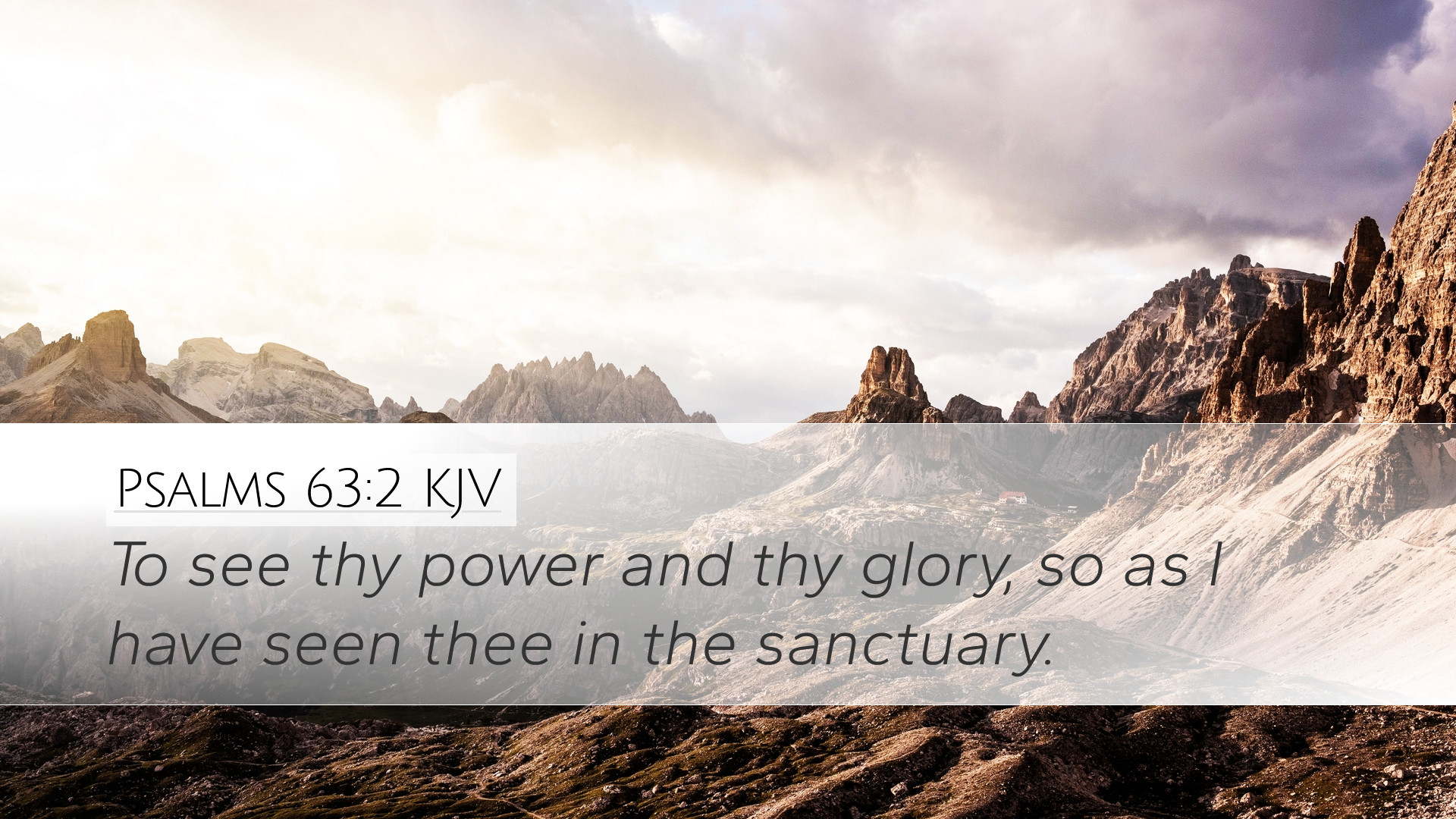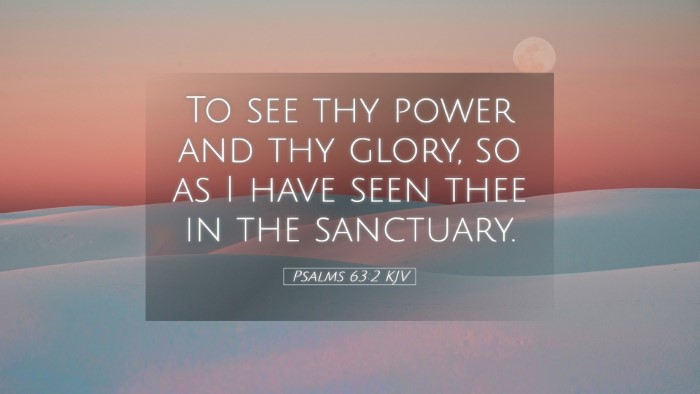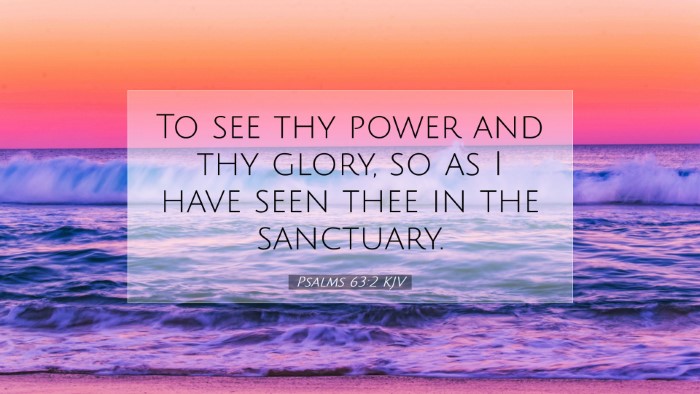Bible Commentary on Psalms 63:2
Verse Text: "So I have looked upon you in the sanctuary, beholding your power and glory." (Psalm 63:2, ESV)
Introduction
Psalms 63 is attributed to David, reflecting his yearning for God during a time of dire circumstances. This particular verse, Psalm 63:2, offers profound insights into the nature of worship and the experience of divine presence. Below, we summarize insights from renowned public domain commentaries including those by Matthew Henry, Albert Barnes, and Adam Clarke.
Contextual Background
David composed this psalm in the wilderness of Judah, a place marked by barrenness and despair. The setting amplifies the intensity of his longing for God as he seeks sustenance not from physical sources, but from a spiritual encounter with the Almighty.
Verse Analysis
The verse expresses a significant theological theme: the vision of God in His sanctuary. This image suggests a profound personal encounter with God's presence, power, and glory, specifically during worship.
- The Sanctuary: The term “sanctuary” signifies a sacred place where God reveals His presence to humanity. In the Old Testament context, this refers to the tabernacle or temple.
- Beholding the Power and Glory: David emphasizes both the power and the glory of God, suggesting that true worship involves an acknowledgment of God's attributes. Power refers to His sovereignty and ability to act, while glory refers to His majesty and worthiness of praise.
Commentary Insights
Matthew Henry's Commentary
Matthew Henry expresses that the experience of looking upon God in His sanctuary is transformative. He emphasizes the intimate relationship that can be developed through worship:
- Longing for God: Henry notes that David’s longing is not merely emotional but a deeply spiritual desire, illustrating that true fulfillment is found in God.
- Experiencing God’s Glory: He indicates that beholding God’s glory enhances our understanding of His nature and invites us into deeper reverence and worship.
Albert Barnes' Notes
Albert Barnes places focus on the veracity of David's declaration about God’s power and glory. He discusses the implications of seeing God in worship:
- Spiritual Vision: Barnes asserts that spiritual insight is essential; it is not enough to have a physical presence in worship; one must seek a spiritual vision of God.
- Personal Encounter: He underscores that the encounter with God’s glory can lead to a deeper commitment to faith and faithful living. This personal experience is foundational to maintaining one's spiritual vitality.
Adam Clarke's Commentary
Adam Clarke provides a nuanced view of the historical and literary context of the psalm, with particular emphasis on obedience and worship:
- Historical Context: Clarke reminds readers that David is in a situation where he is cut off from the public worship of God, highlighting the importance of personal devotion in the wilderness.
- Worship as a Response: Clarke notes that David's beholding of God’s glory is both an act of worship and a response to his desperation, underscoring the significance of returning to worship even in exile.
Theological Implications
This verse compels believers to consider the following theological truths:
- God's Immanence: The sanctuary represents God's immanence—His active presence in the life of believers. David’s declaration reassures believers that God is accessible even in their desolation.
- Worship as Power: The act of worship is imbued with immense power. The beholding of God empowers and sustains believers in trials.
- The Nature of Yearning: David’s yearning for God challenges the contemporary believer to assess their own spiritual hunger. It invites an introspective look at what fills the voids in one’s life.
Practical Applications
For pastors, students, theologians, and scholars, Psalm 63:2 provides invaluable lessons:
- Encourage Personal Devotion: Promote a culture of personal devotion and worship among congregants, encouraging them to seek God's presence in intimacy.
- Highlight the Importance of Worship: Utilize the psalm to remind congregants of the power of worship and its critical role in spiritual growth.
- Foster Spiritual Insight: Teach the importance of spiritual understanding in worship, equipping leaders to guide others in recognizing and beholding God's glory.
Conclusion
Psalms 63:2 serves as both a personal and communal call to behold God's glory. The insights gathered from reputable commentaries reinforce the importance of seeking God passionately. As believers engage with this verse, they are invited to deepen their worship experience—translating the ancient words of David into modern-day expressions of faith and longing for divine presence.


